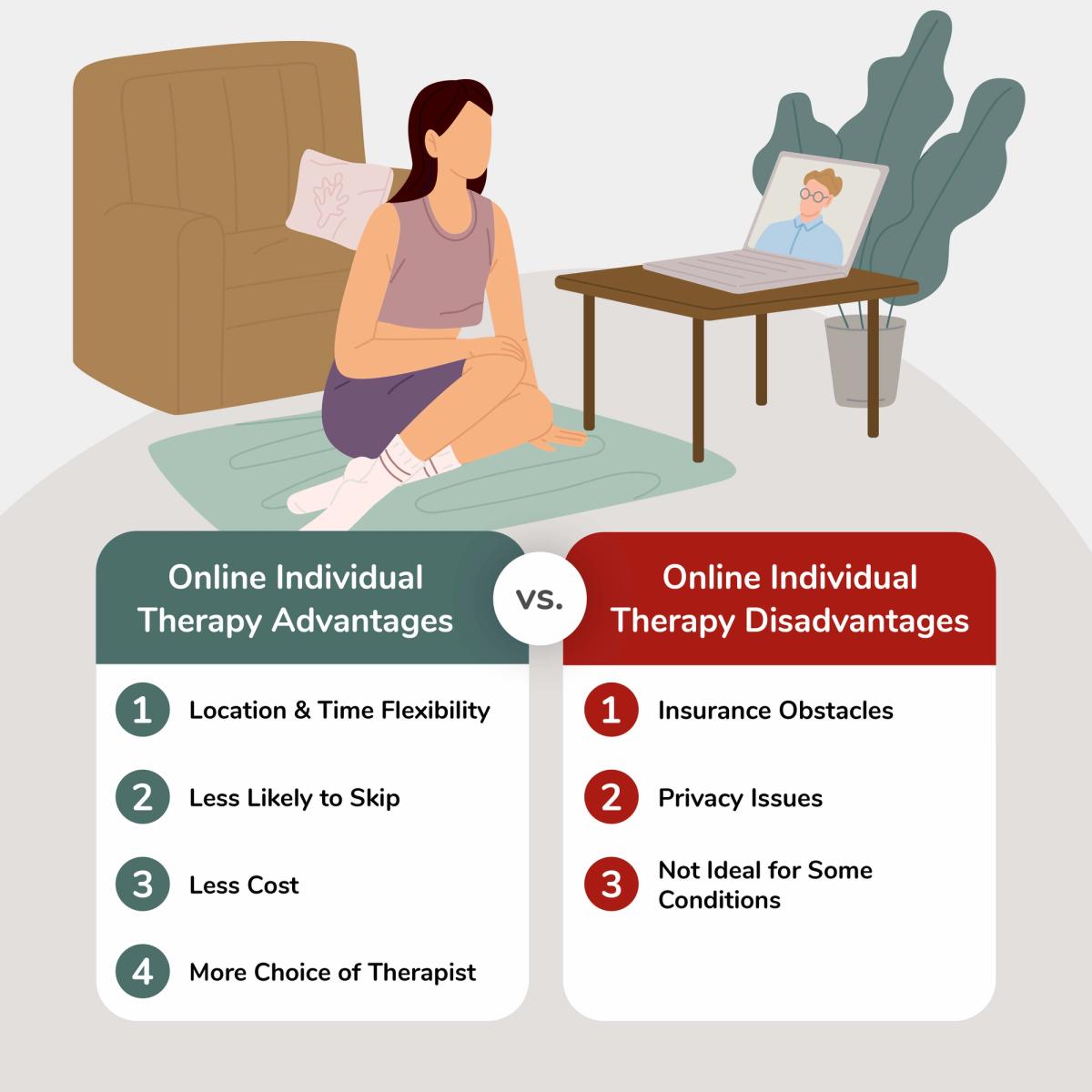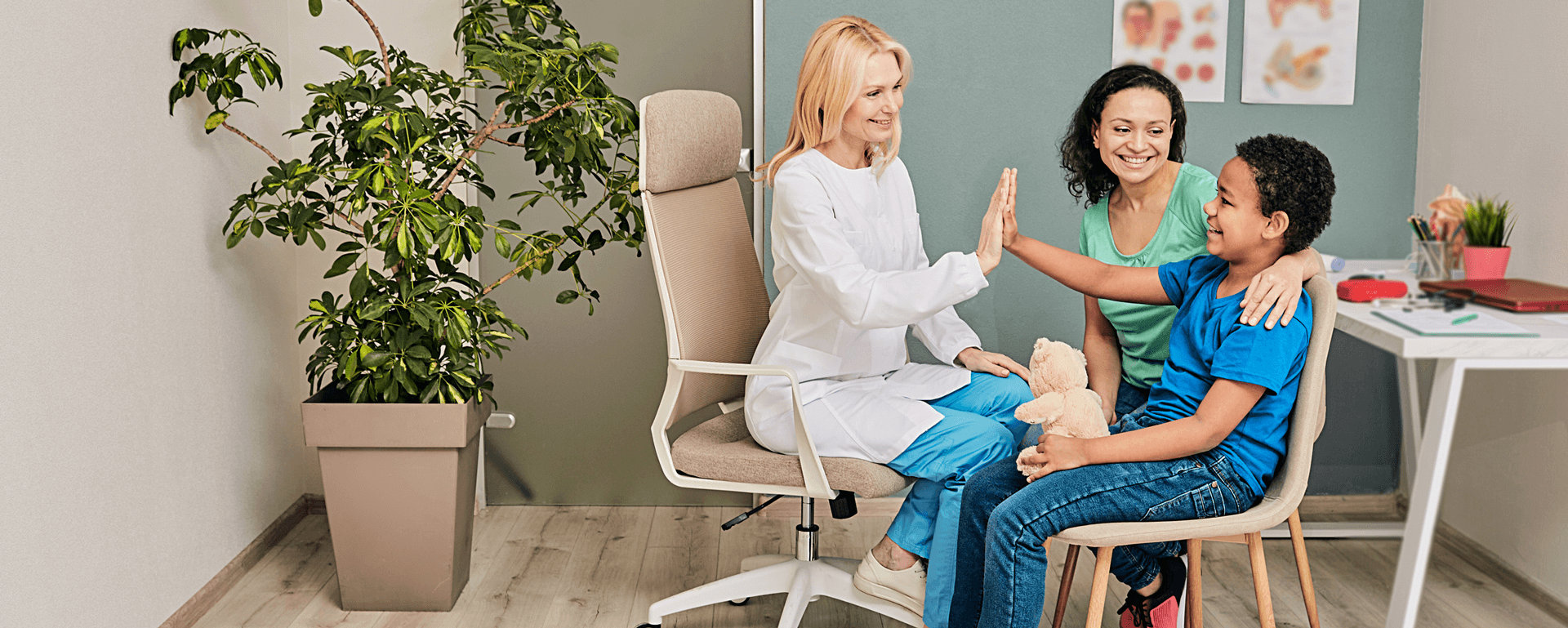Individual Therapy Toronto success stories: how local teens overcame anxiety
Wiki Article
Discovering the Advantages of Mental Treatment for Adolescent Wellness and Development
Mental therapy plays an essential function in the health and development of teenagers. Adolescence is a troubled duration marked by emotional and social obstacles. Treatment offers an organized atmosphere for teens to verbalize their feelings and challenge their battles. It equips them with important tools for strength and interaction. As they navigate this developing stage, the effect of treatment can be extensive. What certain benefits can emerge from such support throughout these formative years?
Comprehending the Adolescent Mind: Challenges and Pressures
As teens navigate the complexities of their developmental stage, they deal with countless obstacles and pressures that can considerably affect their mental wellness. This duration is noted by considerable physical, emotional, and social changes, which can generate feelings of confusion and uncertainty. Peer impact intensifies, often causing a battle for acceptance and identification. Academic expectations can create added anxiety, as the pressure to stand out mounts in a progressively affordable atmosphere.Additionally, the development of social media sites presents a new layer of intricacy, where contrasts to curated online characters can aggravate sensations of inadequacy and stress and anxiety. These aspects can cause psychological distress, consisting of anxiousness, clinical depression, and reduced self-confidence. Recognizing these difficulties is crucial for moms and dads, instructors, and psychological wellness specialists, as it gives insight into the adolescent experience and highlights the requirement for supportive interventions to cultivate strength and well-being throughout this vital developmental phase.
Producing a Safe Area for Expression
Creating a secure area for expression is vital for teens maneuvering their tumultuous developmental phase. In restorative setups, this setting cultivates open discussion, allowing teenagers to interact their sensations without anxiety of judgment. Such spaces enable them to discover their feelings and ideas, which is necessary for recognizing their identifications and experiences.When teenagers feel safe, they are most likely to share their struggles, including stress and anxiety, clinical depression, or interpersonal problems. This open communication can result in much deeper understandings and promote personal growth.
Additionally, a secure space motivates imagination and self-reflection, giving teens the freedom to express themselves with various outlets, such as art or writing. Developing count on between the specialist and the teen is vital, as it underpins the performance of the healing procedure. Inevitably, producing a safe area for expression acts as a foundation for emotional healing and individual advancement during these formative years.
Developing Coping Approaches and Durability

Specialists usually introduce techniques such as mindfulness, journaling, and analytic skills, enabling teens to handle their responses better. Furthermore, by involving in role-play circumstances, they exercise how to deal with tough situations, enhancing their self-confidence. Over time, these skills cultivate a sense of company, gearing up teens with the tools to browse life's uncertainties. The growth of resilience not only help in conquering prompt difficulties however likewise lays the foundation for much healthier psychological actions in adulthood, eventually adding to lifelong wellness.
Enhancing Interaction Abilities
Reliable communication abilities are important for teens as they navigate intricate social landscapes. Mental treatment plays a crucial role in boosting these abilities, permitting teens to express their ideas and emotions extra plainly. Via assisted sessions, specialists motivate teenagers to express their sensations, assisting in far better understanding in peer communications and family dynamics.Treatment offers a safe area for exercising active listening, empathy, and assertiveness. These skills empower teenagers to participate in purposeful discussions, resolve disputes, and build more powerful relationships. As they discover to connect successfully, they additionally get self-confidence in their ability to advocate on their own and their requirements.
In addition, boosted communication skills add to emotional knowledge, permitting teenagers to acknowledge and react to the feelings of others. This alternative development cultivates a supportive atmosphere, ultimately advertising total health and social combination. Through mental therapy, teenagers can grow these crucial skills for a healthier social experience.
Cultivating Personal Development and Self-Discovery
Promoting individual growth and self-discovery in teenagers involves a multifaceted strategy that motivates understanding of personal identification. This procedure additionally highlights the importance of structure durability skills and boosting emotional recognition. Together, these components produce a foundation for much healthier, more confident people as they navigate their formative years.Comprehending Individuality
How do young adults navigate the complicated landscape of individuality as they seek for self-discovery and growth? Throughout this formative period, they face numerous impacts, consisting of peers, household, and social expectations. Psychological treatment can act as a vital device, offering a safe area for exploration and reflection. Through led conversations, teenagers can express their ideas and feelings, allowing them to understand their desires, ideas, and values. This process fosters a deeper recognition of their special identification, empowering them to make enlightened choices and develop a feeling of objective. As they engage in self-discovery, they discover to embrace their originality and browse challenges with higher quality, eventually enhancing their total well-being and personal development.Building Durability Abilities

Enhancing Emotional Awareness
Enhancing psychological recognition is critical for young adults navigating the intricacies of teenage years, as it allows them to identify and understand their sensations a lot more properly. By taking part in psychological therapy, adolescents discover to identify their psychological reactions and the triggers behind them. This procedure promotes individual development and self-discovery, allowing them to express their feelings and handle challenges more adeptly. As teenagers create psychological recognition, they grow compassion, enhance relationships, and enhance interaction abilities. In addition, this increased understanding help in decision-making, helping them browse social pressures and develop a sense of identification. Ultimately, fostering psychological recognition via treatment can bring about healthier coping devices and a more well balanced emotion, essential for prospering throughout these formative years.Building Healthy Relationships and Assistance Solutions
While going across the complexities of teenage years, building healthy connections and support group is vital for teenagers. These links offer emotional stability and a sense of belonging, important throughout this developing phase. Positive partnerships with peers, family, and coaches can enhance self-worth and durability, making it possible for teens to browse obstacles more effectively.Psychological treatment plays a critical duty in cultivating these connections by furnishing teens with communication and conflict-resolution skills. With treatment, they discover to share their feelings, understand different perspectives, and establish borders, which are fundamental for preserving healthy and balanced interactions.
Furthermore, encouraging networks motivate teenagers to seek help when needed, decreasing seclusion and advertising mental health. When teens really feel attached to their support systems, they are extra likely to involve in useful behaviors and make informed choices. On the whole, the farming of healthy relationships and support systems is critical in advertising teenage wellness and personal growth
Often Asked Inquiries
Exactly how Do I Locate a Competent Therapist for My Young adult?
To discover a certified specialist for a young adult, one need to look for referrals from medical care service providers, research study credentials on the internet, check evaluations, and ascertain the therapist concentrates on teenage issues, fostering a helpful environment for development.What Are the Costs Linked With Mental Therapy for Teens?
The prices related to mental treatment for teens differ commonly, normally ranging from $50 to $250 per session. Insurance insurance coverage, gliding scale charges, and neighborhood sources can influence cost and access for families seeking assistance.
Exactly How Typically Should Teenagers Attend Treatment Sessions?
Teenagers need to ideally attend therapy sessions regular or biweekly, relying on private requirements. Consistent sessions can foster a risk-free room for expression, while enabling specialists to keep track of progress and adjust strategies efficiently gradually.Can Therapy Work for All Teens?
Therapy can be reliable for numerous teens, however private outcomes vary. Elements such as individual conditions, openness to the process, and the healing approach employed all influence its effectiveness for each teen.What Should Parents Do During Their Teen's Therapy Process?
Moms and dads need to actively sustain their Individual Teen Counselling teenager's treatment procedure by preserving open interaction, appreciating privacy, attending sessions if welcomed, and motivating their kid's initiatives (Individual Teen Counselling). Comprehending and persistence are essential as teenagers browse their individual development journeyMental treatment plays an essential duty in the well-being and development of teenagers. By involving in mental treatment, teens find out to recognize their emotional reactions and the triggers behind them. Mental therapy plays an essential duty in cultivating these connections by furnishing teenagers with interaction and conflict-resolution abilities. Teens must preferably go to therapy sessions regular or biweekly, depending on specific requirements. Moms and dads need to proactively sustain their teen's therapy process by preserving open interaction, appreciating privacy, attending sessions if welcomed, and motivating their kid's efforts.
Report this wiki page